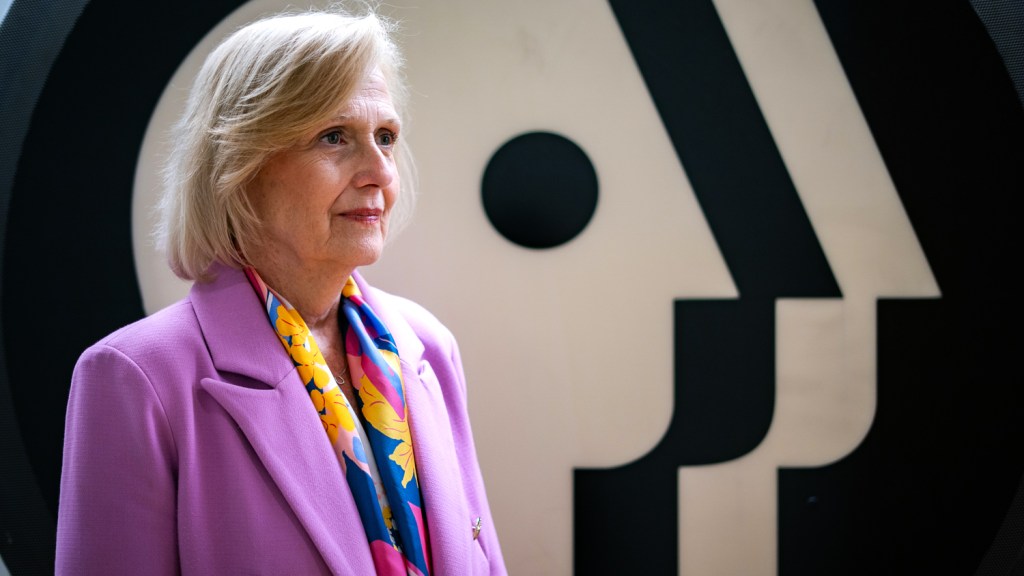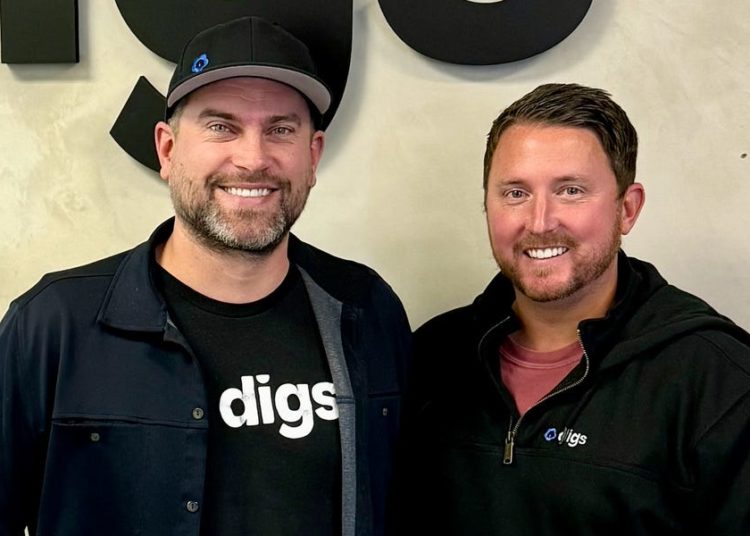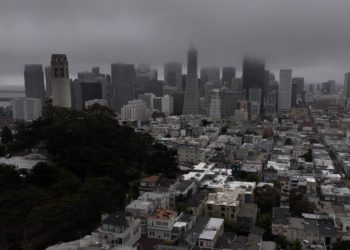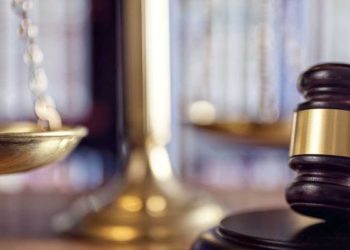PBS, NPR, stations and viewers and other advocates are engaged in a last-minute lobbying effort this week as the Senate is poised to vote on a bill that will shape the future of public media.
Donald Trump has requested that Congress rescind $1.1 billion of federal funding that had already allocated for public broadcasting over the next two fiscal years, as part of a broader package of cuts that also include foreign aid and health programs.
Last month, the House voted approved Trump’s package of “rescissions,” as they are called, in a 214-212 vote. Passage of the package came only after House Speaker Mike Johnson convinced Republican holdouts to flip from a “no” to a “yes” vote, meaning they went from opposing the cuts to favoring them.
In the Senate, there also are believed to be handful of holdouts, enough to compel Trump to threaten to withhold his support or endorsement to any lawmaker who votes against the package. “Any Republican that votes to allow this monstrosity to continue broadcasting will not have my support or Endorsement,” Trump posted on Truth Social last week. Congress has until Friday to approve to pass the set of cuts.
Trump and a number of Republicans want to rollback the public media funding because of the alleged leftward bias of PBS and NPR, but the irony is that the immediate impact likely would be on local stations, including smaller outlets and those in rural communities. They tend to rely on a larger share of their funding from the Corporation for Public Broadcasting, the entity set up by Congress to distribute grants to public broadcasting outlets.
In Trump’s first term, he also tried to zero out funding, but enough Republicans opposed it. But as Trump has shored up his support among the congressional GOP, this time around public media finds itself in its most significant funding threat in its history.
Deadline spoke on Tuesday to Paula Kerger, the president and CEO of PBS, on her outlook on the vote, and what will happen in the rescissions package passes. While there are certainly plenty of warning signs for public media outlets, there also are a lot of questions about next steps. (Edited for brevity).
DEADLINE: There have been a number of times when it seemed like there were GOP holdouts, and in the end, they came to vote for the rescissions package or the President’s past legislative priorities. Do you still have optimism?
PAULA KERGER: I always have optimism. The House vote was disappointing, but it was so close. If you were watching it in real time, we actually were up six votes, and then at the very end, two dropped out. One was Congressman [Don] Bacon from Nebraska, who said later that he was assured by the speaker that our funding would be taken care of in the budget process. I don’t know what that means, actually, but we came a lot closer than I think a lot of people thought. I think people assumed that everyone would vote just directly around along party lines. That’s obviously the backdrop to the Senate vote. I know about as much as you do, from everything that I’m reading, to be really candid. I really can’t predict this at all. I think this could fall anyway. There are a number of people that have expressed concern. Remember, we’re in a bill that also includes a lot of foreign aid.
So I think there are a lot of questions. What we’ve tried to do over the last couple of months since this whole debate began around funding is just to make sure that people understand the impact. People are always confused about public broadcasting. They think that PBS is like CBS, that we’re a network, and obviously we’re not. We are a federated system. Our stations are all locally owned, locally operated, locally governed. In many parts of the country, they’re the only local media stations left in some communities. They may be the only television station, radio station. They make all the decisions, [including] what they put on the air. PBS was created by them to be able to create a scale [for] programs that they’re all interested in. That’s the vast array of programs we have for kids, especially those that aren’t enrolled in pre K… It’s about helping to bring forward great projects like Ken Burns’ series on the American Revolution, which will premiere in November. It’s about really supporting a broad range of programming that is of interest to communities. And so if the funding goes away, the real consequence of it is the impact on local stations. Seventy percent of the [federal] money goes directly to stations. And for some stations, that percentage of their budget could be 10% or 15%. But for a lot of stations, particularly in rural communities, that percentage is 40%. or in some of the most extreme cases, more than 50% of their funding. And for those stations, it’s existential.
This isn’t like a local newspaper that goes under, that someone could come into town the next year and try to start it up again. If a television license goes, it goes. Someone else buys it. It’s gone. Licenses are finite. … We use our broadcast infrastructure as part of the country’s public safety. We’re part of the emergency alert notification system. And that is not just to consumers, but also the first responders. We use broadcast technology to push content out, because we all know what happens during emergencies, particularly severe emergencies, when cell phone service fails. Broadcast is [a] reliable and hardened infrastructure. The president, if he needed to, [has] the ability to go in the air at any moment. All of that is what we provide. We just really want to make sure that the senators, as they’re thinking about [this], what for some is going to be a very difficult decision, understand the consequence of their vote.
DEADLINE: Is that message getting through? Mike Johnson defended the cuts [on Tuesday morning] by citing what he called PBS and NPR’s biased reporting.
KERGER: I did a panel for Axios, probably two months ago before the House took up this. And I talked to him briefly before. He said that I should make the case. … And you know what I always say when people say, ‘Well, you’re biased.’ ‘Well, show me what that means. Tell me, give me an example,’ and so forth. Obviously we take seriously our role as a public broadcaster for the public, and that means bringing many points of view forward. I look at the work we’ve done over the years. This is where Bill Buckley made his home, and in fact, Firing Line continues with Margaret Hoover. We’re interested in having different perspectives. And news is 10% of what we do. So again, when people have talked about public broadcasting and PBS specifically, I’m not sure that they have all the facts exactly correct. We’ve done a ton of polling to really look at how does the public feel about public broadcasting, particularly around federal support. And by a good margin, people support us. They support the government funding. They recognize that we’re a public-private partnership. You know, it’s a tiny amount of money. It’s $1.35 per person per year.
DEADLINE: If the rescissions package passes, what will the immediate impact be on PBS programming? Even though PBS gets a small percentage of the federal allocation, stations still have to pay fees to air that programming.
KERGER: That’s how we are organized. Our stations pay dues. … They invest, and then we take those resources — actually, most of our programming comes from through other local stations, and we put together a full schedule of programming. So obviously, if these cuts stick, a few things will happen. One is we will immediately focus on the budget, which is the next thing that Congress will be attacking. And Speaker Johnson has already said that we would be taken care of in the budget process. I don’t know what that means, but we obviously will be looking for some help there for our stations. We will obviously have to make some hard decisions about what we’re able to continue to do, and how much resources we’ll have. … I’m not going to tell you now what programs might make it or not make it, but obviously we won’t be able to do everything that we’ve done.
The thing that is really the hardest to really think about, is for those stations for whom this will be a catastrophic event, is what, if anything, can be done to help them? Part of the reason they’re more reliant on government funding is that they are in communities. Some of these are really small communities, Smoky Hills, Kansas, or Granite Falls, Minnesota or Cookeville, Tennessee. These are stations that I have visited who do really great work, and I can tell you if those communities are going to be very hard pressed to try to replace the government money. So whether anything can be done to at least mitigate that, or put some bridge funding together, is obviously something I’m thinking about. But that’s not such an easy circumstance to resolve.
Some people have said to me, ‘Well, isn’t there some billionaire that could come in and sort of save the day?’ And I would say my answer to that is, ‘There are a lot of cuts around a lot of things, medical research and other things, that I think it is unreasonable to think that the whole philanthropic world is going to be able to solve everyone’s problems. But I would say for public media in particular, the thing that has always been powerful about us is [we get] lots of small contributions from lots of people. And I think that even the the optics of some one, or some handful of ones, that could come in and sort of solve the problem, I just don’t think for media that’s a good idea. I think that there’s something that is very small ‘D’ democratic about PBS. We’re a bottom up organization, and I think anything that calls that into question to me is a difficult thing to anticipate.
I’ve spent a lot of time thinking about it, whether there is some other path. I would never want anyone to think that we just always assumed there would be government money, and we just keep going in the way that we’re going, just because it’s worked as well for many decades. I think you always have to be thinking further down the pike of just really wondering what else we should be contemplating. And I think in this case, I have not come up yet with an answer that would solve the problem of if the government funding disappears overnight, because that’s really what we’re talking about. We’re in mid July, and we’re talking about funding that is not going to come in October.
DEADLINE: What do you think the impact was of Trump’s Truth Social post was, where he has threatened to withhold support?
KERGER: I don’t know. For those that were inclined to vote for for it, I think you know that it’s a reinforcement. For those who have questions, I just don’t know. Again, we’re in such an unusual time. It’s really hard to predict the impact of anything like this. Obviously, if you are a senator who is not running for re election, you’re in a different position than someone who is. People are still asking the questions. I guess that’s the that’s the only thing I can say around it. Since the tweet came out, people are still asking questions and trying to understand what is in the bill.
DEADLINE: Is there anything you would have done differently, just in terms of making the case?
KERGER: The thing that I have been really focused on every day is making sure that we’re not leaving any stone unturned. As I look back over the last week or so, however this plays out, I do feel like we’ve done everything that I can think of, and the people that work around me, even more so. I’m privileged to work around really talented, smart people, not only in this building, but in our stations across the country, who have really thought about every way that they can reach out to legislators. I’m sure there’s always something else you could have done, but I feel like we really have stayed very focused on just making sure that senators understand the consequence of their vote, and particularly how it will impact their constituents in their communities.
The post PBS CEO Paula Kerger Talks About What’s At Stake As Federal Public Media Funding Faces Crucial Vote: “I Really Can’t Predict This At All” appeared first on Deadline.




